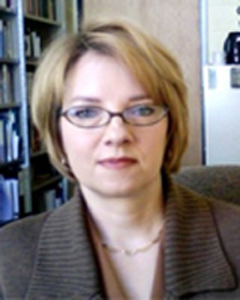Alene Moyer

Professor Emerita, School of Languages, Literatures, and Cultures
Professor Emerita, German Studies
Research Expertise
Phonology
Applied Linguistics
Professor Moyer received her MA and PhD degrees from the University of Texas at Austin in Germanic Languages and Applied Linguistics (1995). She taught for several years at Georgetown University before coming to the University of Maryland in Fall 1999. Prof. Moyer specializes in second language phonological acquisition, sociolinguistics, instructional methodologies, and the intersections of society and language in German. Her graduate and undergraduate courses focus on contemporary issues of language, identity and diversity.Prof. Moyer’s first book appeared in 2004 with Multilingual Matters, entitled: Age, Accent and Experience in Second Language Acquisition. An Integrated Approach to Critical Period Inquiry. Her second book, Foreign Accent: The Phenomenon of Non-native Speech, (Cambridge University Press, 2013) explores issues of learner ability, experience, and orientation as relevant for adult phonological acquisition, as well as the social and legal ramifications of speaking with an accent. Her third book, Social Dynamics in Second Language Accent, is a co-edited volume with John Levis of Iowa State University, (DeGruyter Mouton, 2014, Trends in Applied Linguistics series). Prof. Moyer's articles have appeared in Language Teaching, Applied Linguistics, Studies in Second Language Acquisition, The Canadian Modern Language Review, Journal of Second Language Pronunciation, Journal of Multicultural and Multilingual Development, Issues in Applied Linguistics, Foreign Language Annals, and several edited volumes. She is currently writing a book on gifted language learning, to be published by Cambridge University Press.Prof. Moyer served as Associate Dean for Academic Affairs in the College of Arts and Humanities from 2012-2017, where she oversaw undergraduate and graduate curricular processes and revisions, graduate student fellowships and professional development, the College’s five living-learning programs, and the Learning Outcomes Assessment (LOA) process.

